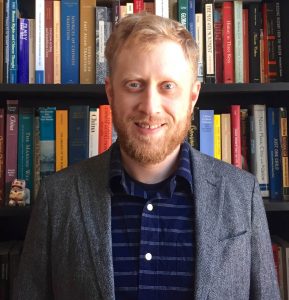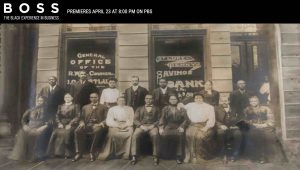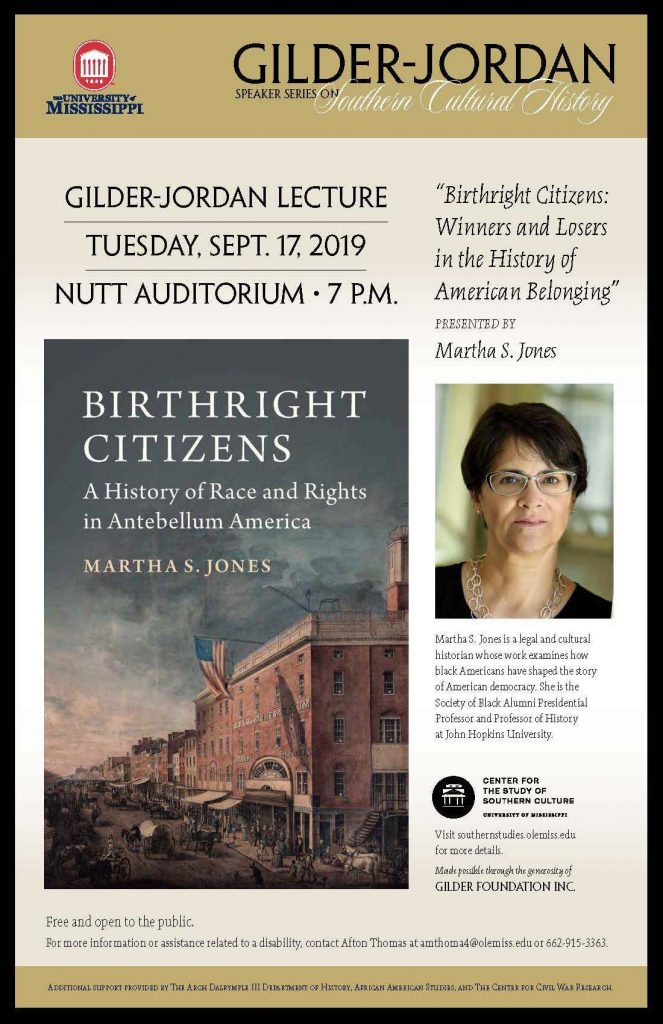Author Archive
Professor Robert Fleegler to Speak on Moon Landing
Join Professor Robert Fleegler for a discussion of the race to the moon from World War II to the moon landing in 1969 on Thursday, September 19 at 12:30PM at the DeSoto Campus, Room 347.
Peter Thilly Wins Luce/ACLS Postdoctoral Fellowship
 Peter Thilly, Assistant Professor of History, has received a postdoctoral fellowship for the 2019-20 academic year from the Henry Luce Foundation and the American Council of Learned Societies to work on his book manuscript, Opium and Capitalism on the Chinese Maritime Frontier.
Peter Thilly, Assistant Professor of History, has received a postdoctoral fellowship for the 2019-20 academic year from the Henry Luce Foundation and the American Council of Learned Societies to work on his book manuscript, Opium and Capitalism on the Chinese Maritime Frontier.
Professor Thilly’s book provides a social history of the “opium century” – the one hundred years during which opiate narcotics dominated the Chinese economy and became normalized within Chinese society. By focusing on the criminal brokers who operated the drug trade, it tells overlapping stories about the local experiences of global imperialism, nationalism, statebuilding and corruption. The people who dealt in drugs, over the course of the opium century, he argues, carved out a particular capitalist version of local power in the face of encroaching, modernizing states. In so doing, drug traders transformed the processes of nation-building and imperialism in China.
The Henry Luce Foundation/ACLS Program in China Studies seeks to maintain the vitality of China Studies in the US and Canada through fellowships and grants designed primarily for scholars early in their careers. Postdoctoral fellowships support scholars in preparing their PhD dissertation research for publication or in embarking on new research projects. This program is made possible by a generous grant from The Henry Luce Foundation, with additional funding from the National Endowment for the Humanities.
Joshua Howard Awarded Fellowship at Institute for Advanced Studies
 Joshua Howard, Croft Associate Professor of History and International Studies, has received a residential fellowship at the School of Historical Studies at the Institute for Advanced Studies for the 2019-2020 academic year.
Joshua Howard, Croft Associate Professor of History and International Studies, has received a residential fellowship at the School of Historical Studies at the Institute for Advanced Studies for the 2019-2020 academic year.
His project, “New China Daily: Social Change and the Class Project in Wartime Nationalist China” is the first study of the Chinese Communist press and its relationship to social change and labor during the Second Sino-Japanese War (1937-1945) and postwar labor movement. Broadening our perspective beyond a history of military conflict, political and institutional change, he argues that the Anti-Japanese War induced social change and working-class formation in Nationalist China’s cities, that was both reflected and facilitated by the New China Daily (Xinhua ribao).
The Institute for Advanced Study is one of the world’s leading centers for curiosity-driven basic research. Since 1930, it has served as a model for protecting and promoting independent inquiry, prompting the establishment of similar institutes around the world, and underscoring the importance of academic freedom worldwide.
The Institute’s mission and culture have produced an exceptional record of achievement. Among its present and past Faculty and Members are 33 Nobel Laureates, 42 of the 60 Fields Medalists, and 18 of the 20 Abel Prize Laureates, as well as many MacArthur Fellows and Wolf Prize winners. Past Faculty have included Albert Einstein, one of its first Professors who remained at the Institute until his death in 1955, and distinguished scientists and scholars such as Kurt Gödel, J. Robert Oppenheimer, Erwin Panofsky, Hetty Goldman, Homer A. Thompson, John von Neumann, George Kennan, Hermann Weyl, and Clifford Geertz.
Two History Majors Join Phi Beta Kappa
 Two history majors were inducted into Phi Beta Kappa, the nation’s most prestigious academic honor society, this past April.
Two history majors were inducted into Phi Beta Kappa, the nation’s most prestigious academic honor society, this past April.
Graduating seniors Natalie Huseby, a history major and Spanish minor from El Paso, Texas, and Arin Kemp, a history major and French and Religious Studies minor from Horn Lake, Mississippi, were among the 91 students campus-wide who were invited to join Phi Beta Kappa this year. Election to membership in Phi Beta Kappa is an honor conferred upon fewer than ten percent of each graduating class. Students do not apply for membership but are selected during the spring semester each year by the Phi Beta Kappa chapter as a whole, after a careful review of the academic records of each eligible candidate.
Jacob Ferguson wins Franklin L. Riley Prize
 Jacob Ferguson is the winner of the 2018-2019 Franklin Riley prize for best undergraduate paper for his work on “Paternalism and Property Rights in the Slaveholding South: F.A.P. Barnard’s Trial at the University of Mississippi, White Southerners, and Slave Testimonies.” This prize, which was decided by an awards committee consisting of Professors Rebecca Marchiel (chair), Garrett Felber, and Eva Payne, comes with a $250 award.
Jacob Ferguson is the winner of the 2018-2019 Franklin Riley prize for best undergraduate paper for his work on “Paternalism and Property Rights in the Slaveholding South: F.A.P. Barnard’s Trial at the University of Mississippi, White Southerners, and Slave Testimonies.” This prize, which was decided by an awards committee consisting of Professors Rebecca Marchiel (chair), Garrett Felber, and Eva Payne, comes with a $250 award.
Ferguson’s paper, which was completed for Professor Anne Twitty’s HST 498: Slavery and Its Legacies at the University of Mississippi during Fall 2018, asks why and to what extent white southerners and slave owners listened to slave testimonies. His entry point into this examination is the rape of Jane, an enslaved woman claimed by University of Mississippi Chancellor F.A.P. Barnard, who was attacked by a white student in 1859. Though the Board of Trustees found the accused student legally not guilty, Barnard had the student’s guardians withdraw him from the university, which led to questions among university faculty and prominent community members about whether Barnard was sound on the slavery question. Eventually, Barnard’s decision to take the word of a slave over that of a white student led to a second trial to determine where Barnard’s loyalties lay, and Barnard’s eventual resignation. Ferguson then considers a variety of situations in which enslaved people commanded an audience, including moments when masters were expected to listen to and respond to slave complaints. In discussing these circumstances at length, it arrives at a more nuanced understanding of the traditional master-slave relationship and what it meant to be a respected southern slave master.
Kaimara Herron awarded Tennin-Alexander Prize
 Kaimara Herron is the winner of the 2018-2019 Tennin-Alexander Prize for the best non-thesis graduate history paper for her work on “‘In the Hands of Responsible Persons’: Social Services, Memory, and Politics in the Mississippi State Federation of Colored Women’s Clubs, 1904-1942.” This prize, which was decided by an awards committee consisting of Professors Rebecca Marchiel (chair), Garrett Felber, and Eva Payne, comes with a $750 award.
Kaimara Herron is the winner of the 2018-2019 Tennin-Alexander Prize for the best non-thesis graduate history paper for her work on “‘In the Hands of Responsible Persons’: Social Services, Memory, and Politics in the Mississippi State Federation of Colored Women’s Clubs, 1904-1942.” This prize, which was decided by an awards committee consisting of Professors Rebecca Marchiel (chair), Garrett Felber, and Eva Payne, comes with a $750 award.
Herron’s paper, which was completed for Professor Darren Grem’s HST 702: Research – US from Civil War to Present, demonstrates the centrality of Black clubwomen to 19th century postbellum politics. Building upon Elsa Barkley Brown’s insight that Black women’s formal political exclusion did not equal marginalization from informal political influence through collective community politics, Herron argues that these clubwomen’s activism cannot not be reduced to “racial uplift.” By tracing two of the Mississippi State Federation of Colored Women’s Clubs’ projects – the Old Folks Home in Vicksburg, MS and the Margaret Murray Washington Home for Juvenile Delinquents near Clinton, MS – Herron shows how memory work and the politics of space were used in the absence of formal policymaking channels. For example, while white women used social and political capital to reshape the physical landscape of the New South with confederate monuments, school curricula, and venerations of the Lost Cause, the MSFCWC reclaimed and renovated antebellum homes intended for the formerly enslaved to create spaces of care and remembrance. Both the Old Folks Home and the Juvenile Home challenged and recast the Lost Cause narrative through a contested politics of space and memory. Through such projects, Black clubwomen in Mississippi engaged in a nuanced form of political engagement not easily reduced to racial uplift or respectability politics.
Jesse Cromwell wins Book Prize in Latin American History
 On April 6, 2019, Jesse Cromwell won the 2018 Bandelier-Lavrin Book Prize in Colonial Latin American History at the 66th Annual Meeting of the Rocky Mountain Council for Latin American Studies for his book The Smugglers’ World: Illicit Trade and Atlantic Communities in Eighteenth-Century Venezuela (Omohundro Institute – University of North Carolina Press, 2018). The prize is awarded to the best book published by a member of the council in the previous calendar year on the subject of colonial Latin American history. The Rocky Mountain Council for Latin American Studies is the oldest Latin American area studies organization in the United States. Jesse’s book examines a critical part of Atlantic trade for a neglected corner of the Spanish Empire. Forsaken by the Spanish fleet system, Venezuelan colonists struggled to obtain European foods and goods. They found a solution in exchanging cacao, a coveted luxury, for the necessities of life provided by contrabandists from the Dutch, English, and French Caribbean. Smuggling became more than an economic transaction or imperial worry; persistent local need elevated the practice to a communal ethos, and Venezuelans defended their commercial autonomy through passive measures and even violent political protests. Negotiations between the Spanish state and its subjects over smuggling formed a key part of empire making and maintenance in the eighteenth century. More information on the book can be found here.
On April 6, 2019, Jesse Cromwell won the 2018 Bandelier-Lavrin Book Prize in Colonial Latin American History at the 66th Annual Meeting of the Rocky Mountain Council for Latin American Studies for his book The Smugglers’ World: Illicit Trade and Atlantic Communities in Eighteenth-Century Venezuela (Omohundro Institute – University of North Carolina Press, 2018). The prize is awarded to the best book published by a member of the council in the previous calendar year on the subject of colonial Latin American history. The Rocky Mountain Council for Latin American Studies is the oldest Latin American area studies organization in the United States. Jesse’s book examines a critical part of Atlantic trade for a neglected corner of the Spanish Empire. Forsaken by the Spanish fleet system, Venezuelan colonists struggled to obtain European foods and goods. They found a solution in exchanging cacao, a coveted luxury, for the necessities of life provided by contrabandists from the Dutch, English, and French Caribbean. Smuggling became more than an economic transaction or imperial worry; persistent local need elevated the practice to a communal ethos, and Venezuelans defended their commercial autonomy through passive measures and even violent political protests. Negotiations between the Spanish state and its subjects over smuggling formed a key part of empire making and maintenance in the eighteenth century. More information on the book can be found here.
Jesse Cromwell is Associate Professor of colonial Latin American history in the Arch Dalrymple III Department of History at the University of Mississippi. For more information on Dr. Cromwell’s work, please see his faculty page.
Graduate Student Monica Campbell wins Research Grant
 Monica N. Campbell, a Ph.D. candidate in the Arch Dalrymple III Department of History, has been awarded an Albert J. Beveridge Grant to support research in the history of the Western Hemisphere (United States, Canada, and Latin America) from the American Historical Association.
Monica N. Campbell, a Ph.D. candidate in the Arch Dalrymple III Department of History, has been awarded an Albert J. Beveridge Grant to support research in the history of the Western Hemisphere (United States, Canada, and Latin America) from the American Historical Association.
Campbell will use this money together with a Dalrymple Research Grant for summer 2019 to visit the LBJ Library in Austin and to revisit the archives at the University of Arkansas in Fayetteville.
These research trips will help Campbell complete her dissertation, which charts the implementation of wholly market and private sector based urban planning policies through Little Rock’s Metroplan urban renewal program in the 1950s/60s. Specifically, she examines how Little Rock’s urban renewal strategists adapted the policies that became neoliberalism – including the destruction of public housing, the public-private coalition of city government and private investors, and gentrification – decades before they appeared in larger cities. She argues that, although on the national periphery and controversial in the 1950s, Little Rock’s urban renewal policies helped redefine the center ground of American political economy twenty years later. Close examination of this moment in urban history illustrates how smaller cities served as laboratories for urban renewal plans that centered around business and pro-growth politics to revitalize city centers, rather than escape them, in conjunction with state anti-labor policies that would inform the emergence of third-way liberalism in the 1970s.
Shennette Garrett-Scott Featured in PBS Documentary
 Associate Professor of History & African American Studies Shennette Garrett-Scott will be featured on PBS’s new documentary series “Boss: The Black Experience in Business,” which premieres Tuesday, April 23 at 8PM. Catch Dr. Garrett-Scott in this trailer, and don’t forget to tune in!
Associate Professor of History & African American Studies Shennette Garrett-Scott will be featured on PBS’s new documentary series “Boss: The Black Experience in Business,” which premieres Tuesday, April 23 at 8PM. Catch Dr. Garrett-Scott in this trailer, and don’t forget to tune in!


